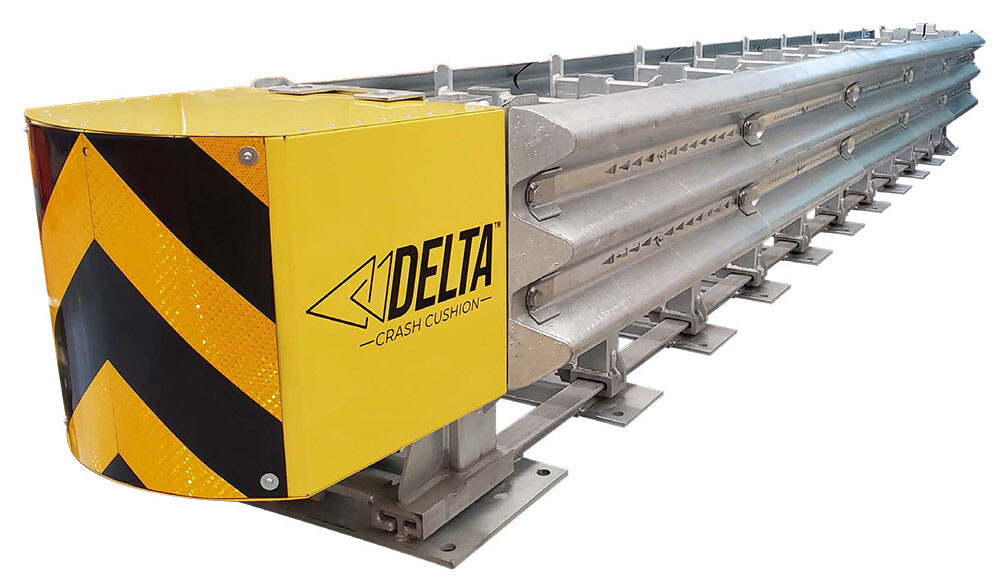
Most drivers will never notice them. But the steel barriers lining the highway could be the difference between walking away from a crash, or not.
University of Nebraska–Lincoln researchers have designed the next generation of these steel barriers, known as the Delta crash cushion, in collaboration with TrafFix Devices, Inc., a company that is now manufacturing and selling the product.
“We hope it will save somebody’s life,” said Ron Faller, director of the Midwest Roadside Safety Facility. “That’s what it’s about: sending somebody safely home to their family.”
One of the Delta crash cushion’s distinguishing features is its side panels, which absorb kinetic energy during a crash and eliminate complex devices commonly used in other barriers, such as hydraulic cylinders, cables and cartridges.
According to Faller, transportation officials have praised the cushion’s simplicity, which requires minimal maintenance and is easy to install.

Behind this simple design is a six-year industry partnership between Nebraska researchers and TrafFix Devices engineers. NUtech Ventures and UNL Industry Relations worked with the teams to arrange an industry-sponsored research agreement and manage the patenting and licensing processes.
“UNL’s reputation is unmatched in the world for our industry, and it’s been an incredible development process for us,” said Geoff Maus, vice president of engineering at TrafFix Devices, Inc. “The Nebraska team pushed the envelope beyond what I thought was possible.”
For the Nebraska researchers, the feeling is mutual.
“TrafFix is a great partner and had a clear idea of what they wanted out of the device to make it commercially successful,” said Bob Bielenberg, research engineer at the Midwest Roadside Safety Facility. “For us, the design challenge was the fun part.”
Among the design challenges: The product needed to meet the highest safety standards, be fully recyclable and cosmetically appealing, fit onboard tractor-trailers and overseas shipping containers, and be cost-competitive to manufacture — making it more accessible for emerging markets.
“We took all this into consideration and have developed one of the best products on the market,” said Brent Kulp, president of TrafFix. “As a global company that exports to more than 50 countries, we’re excited to bring this product to the world.”







